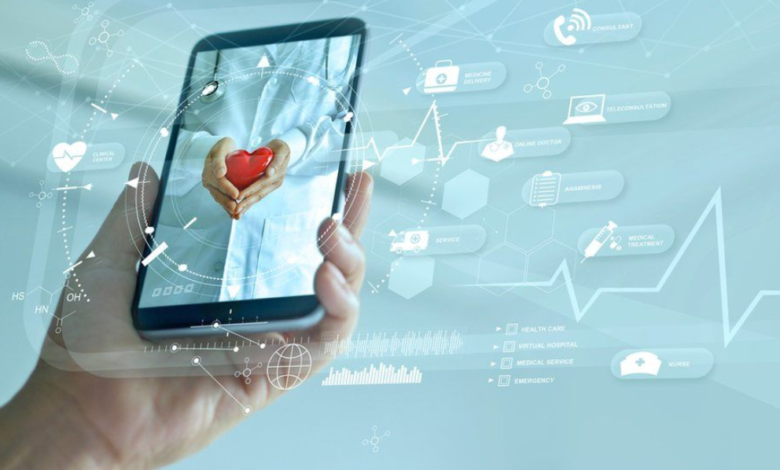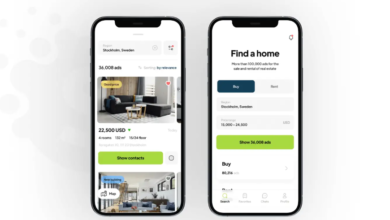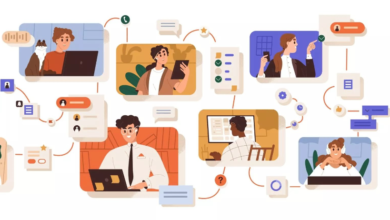Integrating Wearables: The Future of Healthcare Apps

The Healthcare industry is rapidly transforming, and the utilization of wearables is playing a major role in how individuals are observing their health. Wearables allow users to track their fitness, nutrition, sleep, and other vital signs with just the touch of a button. This technology is assisting healthcare app development and healthcare providers with getting a superior understanding of their patient’s overall health and prosperity.
Integrating wearables with custom software development is presently turning out to be more common. Wearables can give vital information to healthcare providers that can be utilized to diagnose and treat a variety of health issues. The integration of wearable technology with healthcare applications is allowing healthcare providers to create tailored programs for their patients, enabling them to screen and track the advancement of their treatment plans.
Mobile app developers are utilizing these technologies to create healthcare applications that take advantage of the data gathered from wearable gadgets. By doing this, healthcare providers are able to track the advancement of their patients all the more accurately and give better care.
Introduction to Wearables in Healthcare
Wearable technology, or “wearables”, are gadgets that can be worn on the body to measure and screen various physiological parameters. These gadgets have become increasingly popular lately as a successful way to track health data and work on overall prosperity. In healthcare, wearables are being utilized for a range of applications from tracking vital signs to giving personalized medical advice.
Wearables allow healthcare providers to gather and analyze data in real-time, furnishing them with valuable experiences about their patients’ health. By integrating wearables into custom software development projects, healthcare providers can create tailored programs that track patient advancement and give personalized treatment recommendations.
Benefits of Integrating Wearables into Healthcare Apps
1. Improved Patient Education
Integrating wearables into healthcare apps provides a chance for clinicians to convey personalized health information in a helpful and accessible way. Using wearable gadgets, patients can get detailed guidelines on the most proficient method to manage their condition or way of life and stay up to date with relevant medical news. This allows them to make more educated choices about their health and prosperity.
2. Enhanced Treatment Plans
By incorporating wearables into custom software development, healthcare providers can create tailored treatment plans for their patients. Wearable gadgets can give data about a patient’s physical activity levels, rest patterns, and other relevant health information that can be utilized to decide the best treatment plan for an individual. By leveraging this data in the healthcare app development services, healthcare providers can all the more likely understand their patients’ necessities and create a more complete treatment plan.
3. Improved Care Management
Wearables furnish healthcare providers with experiences into how their patients are answering treatments, enabling them to make necessary adjustments and guarantee the most ideal results. By tracking the advancement of their patients through wearable gadgets, healthcare providers can give better care management and increase overall patient satisfaction.
4. Increased Data Security
Data security is an important worry in healthcare, and the utilization of wearables allows for further developed assurance of touchy information. Wearable gadgets can be utilized to safely store data that is then encoded and safeguarded against unauthorized access. This assists with guaranteeing the security and privacy of patients’ data for many custom mobile app development company.
Challenges and Considerations in Integrating Wearables
1. Security
Quite possibly the greatest challenge in integrating wearables is guaranteeing that the gadgets and data they transmit are secure. This means carrying out vigorous authentication conventions and encryption standards to shield client data from malicious attacks or unwanted access. Additionally, organizations should know about any potential vulnerabilities with their frameworks and take moves toward patch them on the double.
2. Compatibility
Wearables should be compatible with existing software frameworks to guarantee that data is gathered and transmitted accurately. Organizations should consider the kinds of gadgets they are utilizing and make sure that they are compatible with their software prior to integrating them into custom applications. Additionally, any new wearables ought to be tried completely prior to being sent in a production environment.
3. Regulation
While incorporating wear ables into healthcare apps, organizations should know about any applicable regulations and guarantee compliance. This incorporates understanding the legal necessities for handling delicate patient data as well as any limitations on the kinds of gadgets that can be utilized. It is important to research any regulations preceding integrating wearables to completely avoid any potential liabilities for custom mobile app development service providers.
4. Data Analysis
Incorporating wearables into healthcare apps allows for further developed data analysis and bits of knowledge into patient health. By leveraging the data gathered by wearable gadgets, healthcare providers can track the headway of their patients all the more accurately and make adjustments to their treatment plans as required. Additionally, organizations can utilize this data to evaluate the adequacy of treatments and foster new strategies for working on patient care.
Future Trends and Possibilities
1. Autonomous Vehicles
The advent of autonomous vehicles has made a tremendous impact, and what’s to come looks significantly more splendid as research and development advances. Autonomous cars will actually want to navigate complex environments, learn as a matter of fact, and offer passengers an uncommon degree of comfort. In addition, autonomous vehicles could lessen traffic jams, further develop safety by decreasing human mistake, and give access to transportation to those unable to drive because of age, disability, or different reasons.
2. Augmented Reality
Augmented reality (AR) is a technology that overlays virtual components onto the real world. This allows users to interact with digital 3D items in their environment and could have a large impact on the healthcare industry. For example, AR could be utilized to give medical understudies interactive 3D models of anatomy, or many healthcare app development companies utilize it to visualize medical scans and assist specialists with diagnosing ailments.
3. Artificial Intelligence
Artificial Intelligence (AI) is a rapidly creating technology that has the potential to further develop healthcare in many ways. AI can be utilized to automate mundane tasks like data assortment and analysis, as well as leverage large amounts of patient data for further developed diagnostics and personalized treatments . Additionally, AI can be utilized to foster virtual assistants that assist healthcare providers with answering patient inquiries or giving diagnoses in real-time.
4. Blockchain
Blockchain technology could upset the healthcare industry by giving a solid and tamper-evidence platform for putting away medical records. This would make it easier to safely share information between various stakeholders, further develop collaboration among providers, and guarantee privacy of patient data. Additionally, blockchain could be utilized to facilitate online payments for healthcare benefits and give transparency in the charging system.
Conclusion
Wearable technology is turning out to be increasingly popular in the healthcare space. With advances in technology, integrating wearables into healthcare apps has become easier and more effective than any other time in recent memory. This integration is allowing for a greater degree of health observation, more accurate medical diagnosis, and further developed treatment choices for patients in many top app development companies in USA. Wearable-integrated healthcare apps are giving comfort as well as offering peace of mind to the people who use them. As technology keeps on creating, the opportunities for healthcare applications are perpetual.




